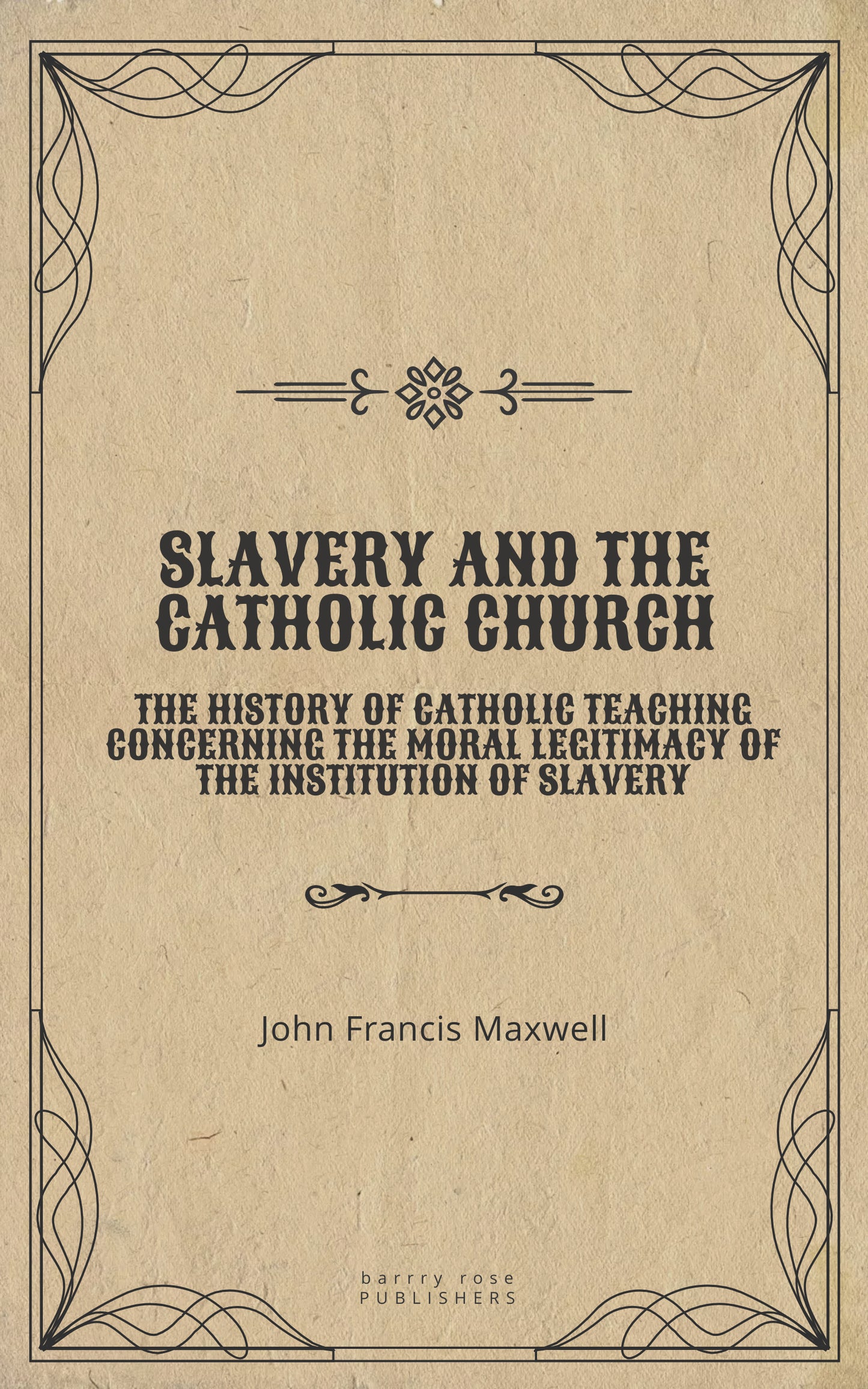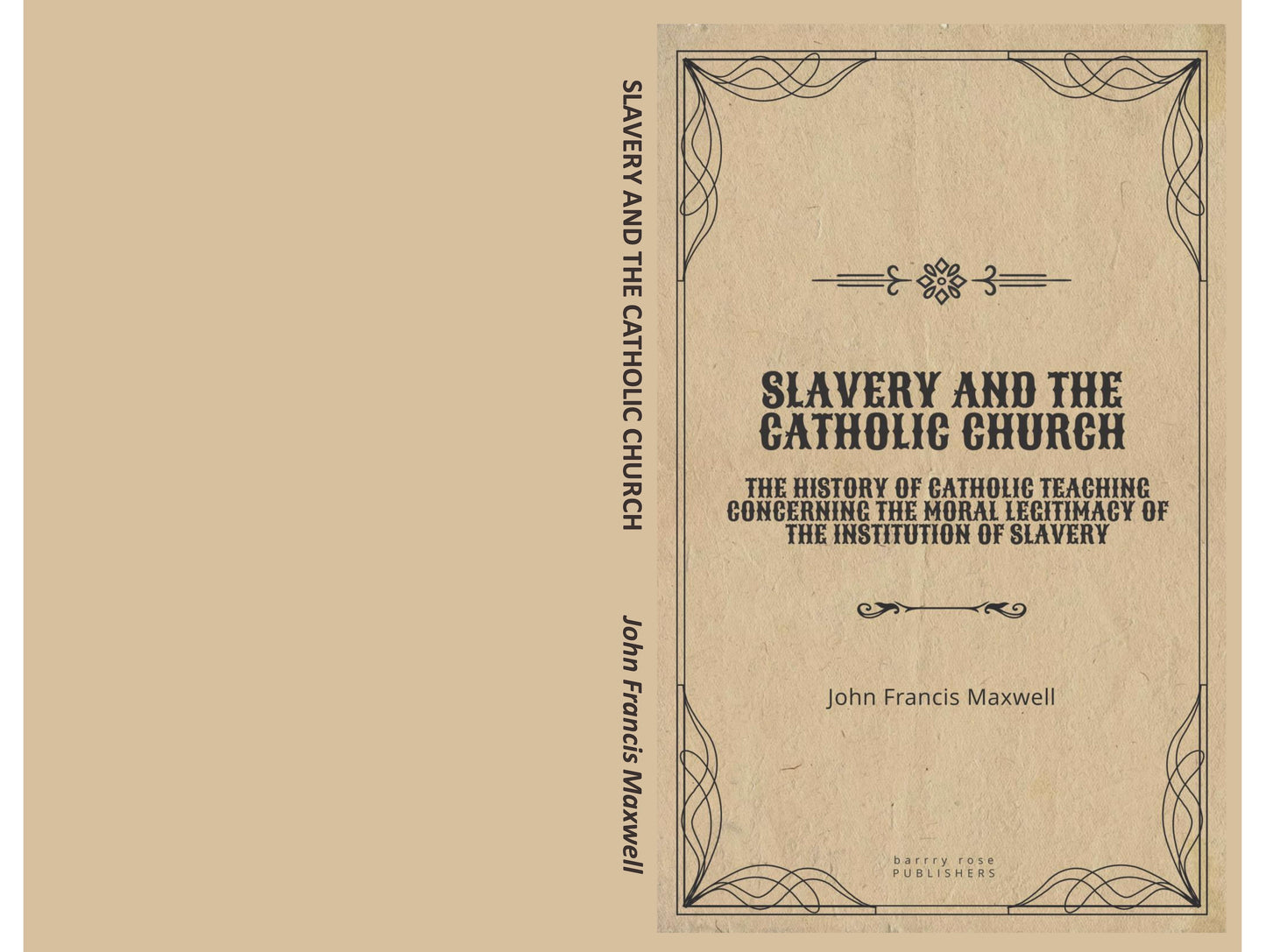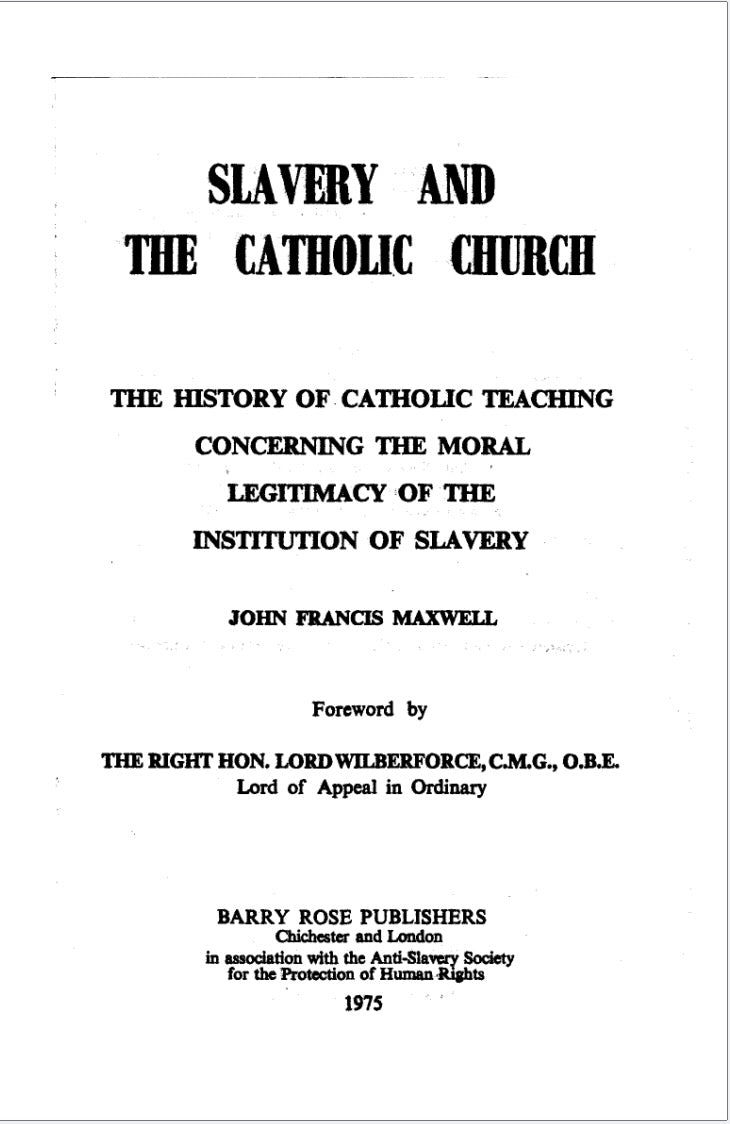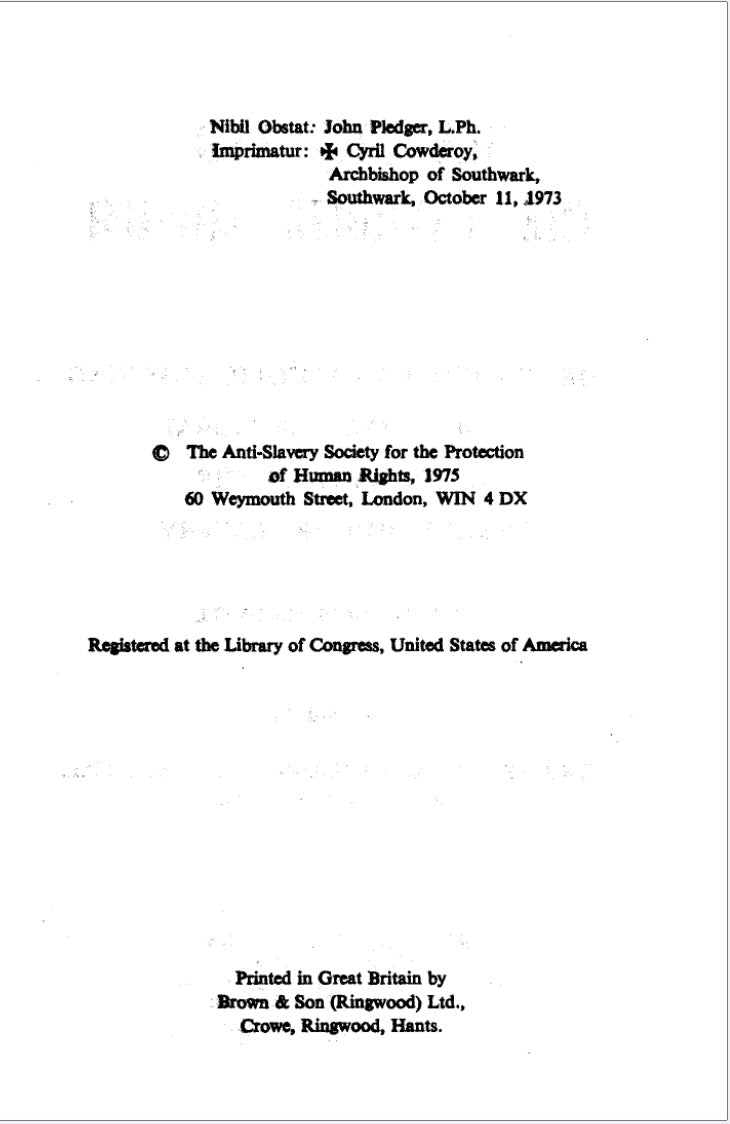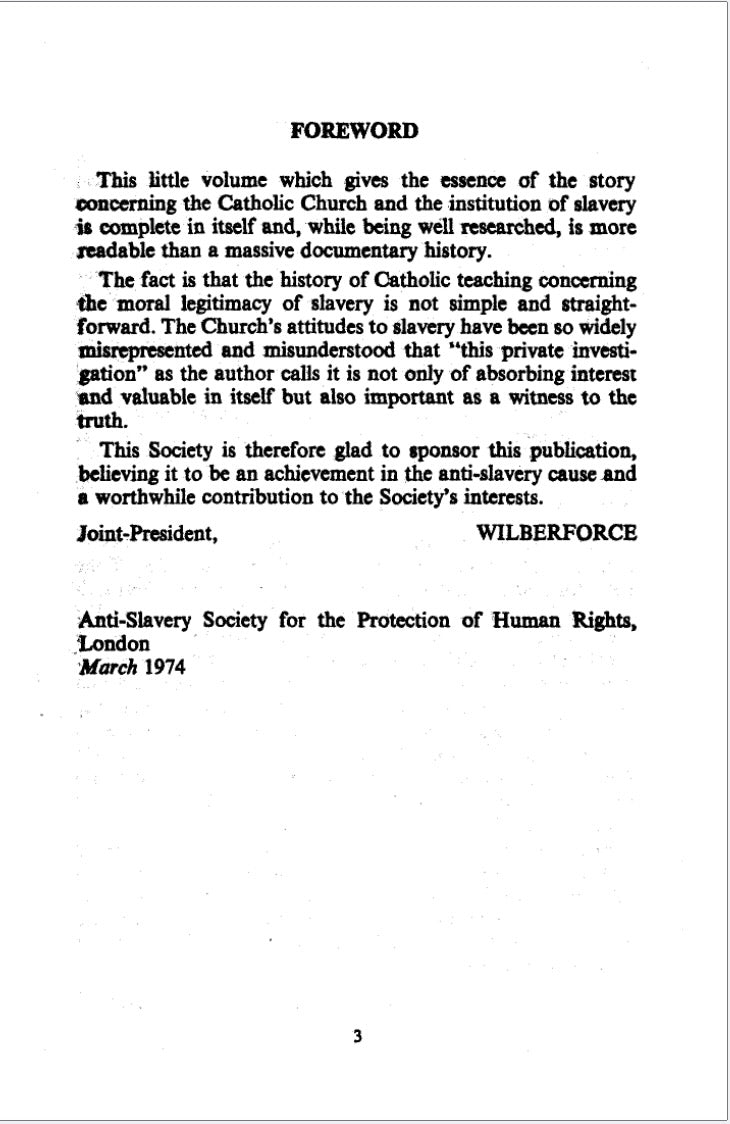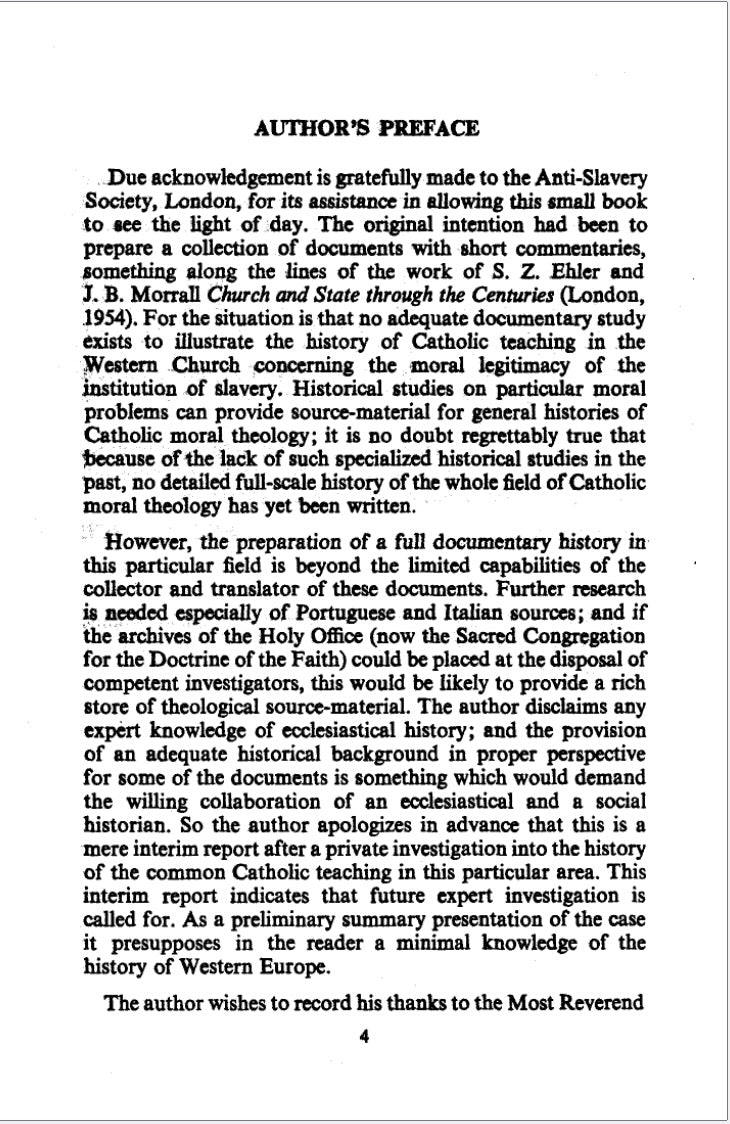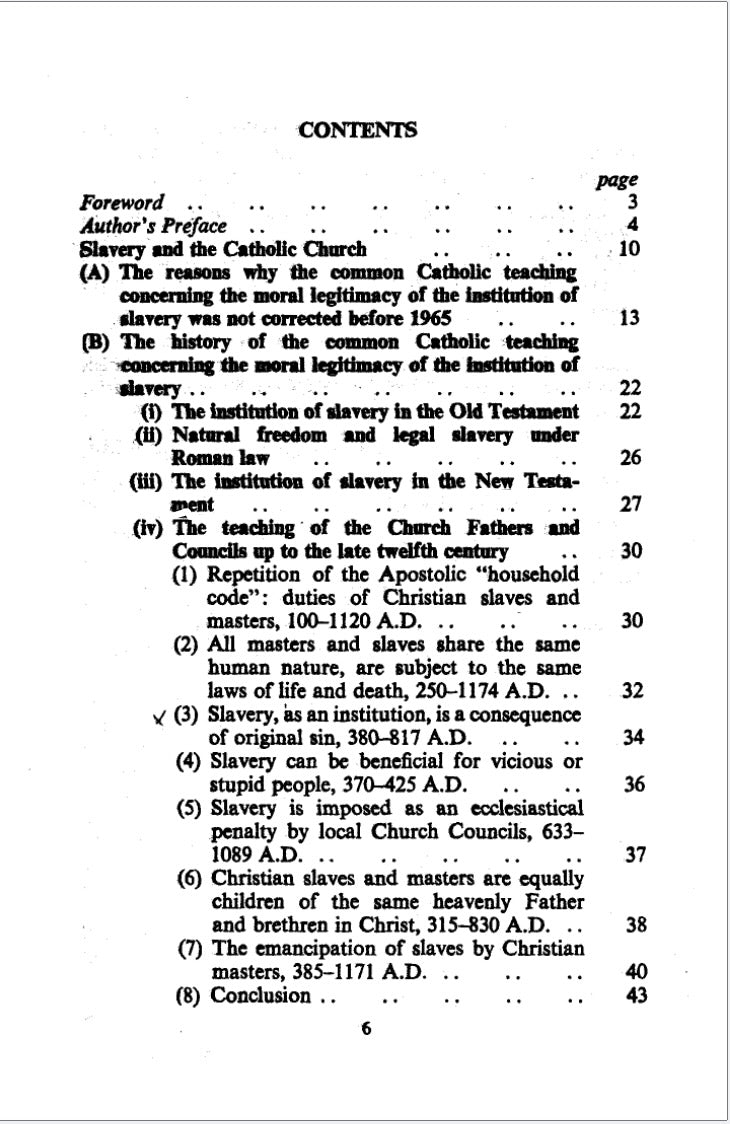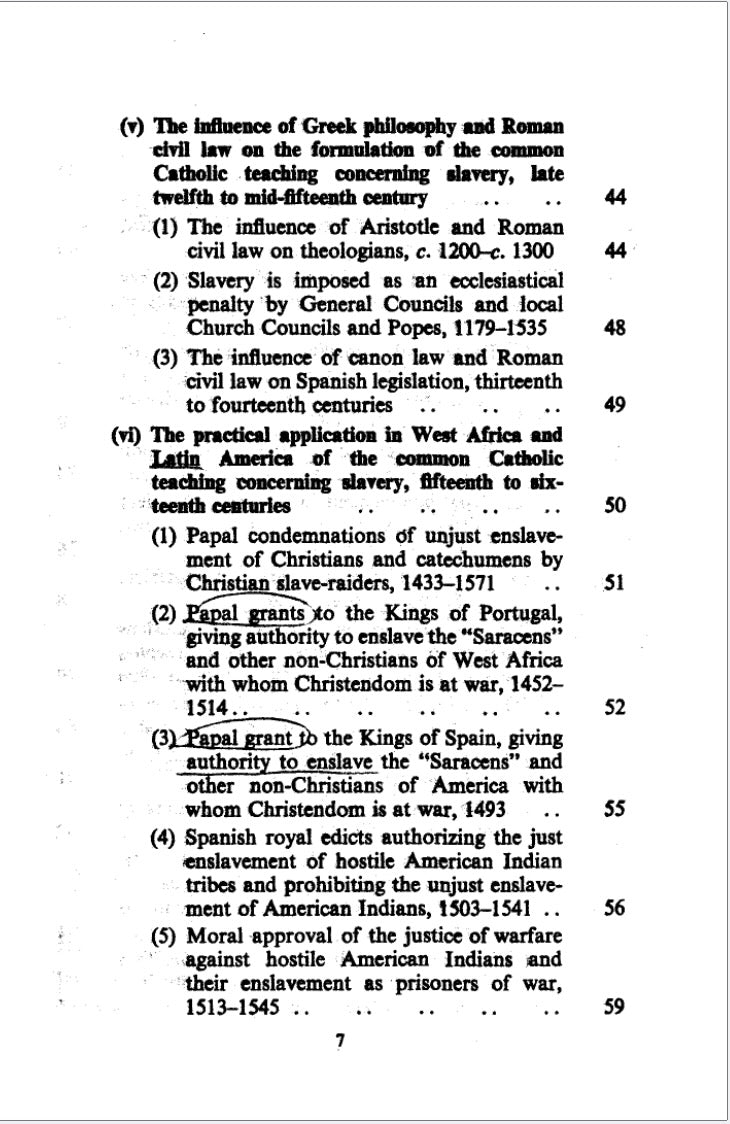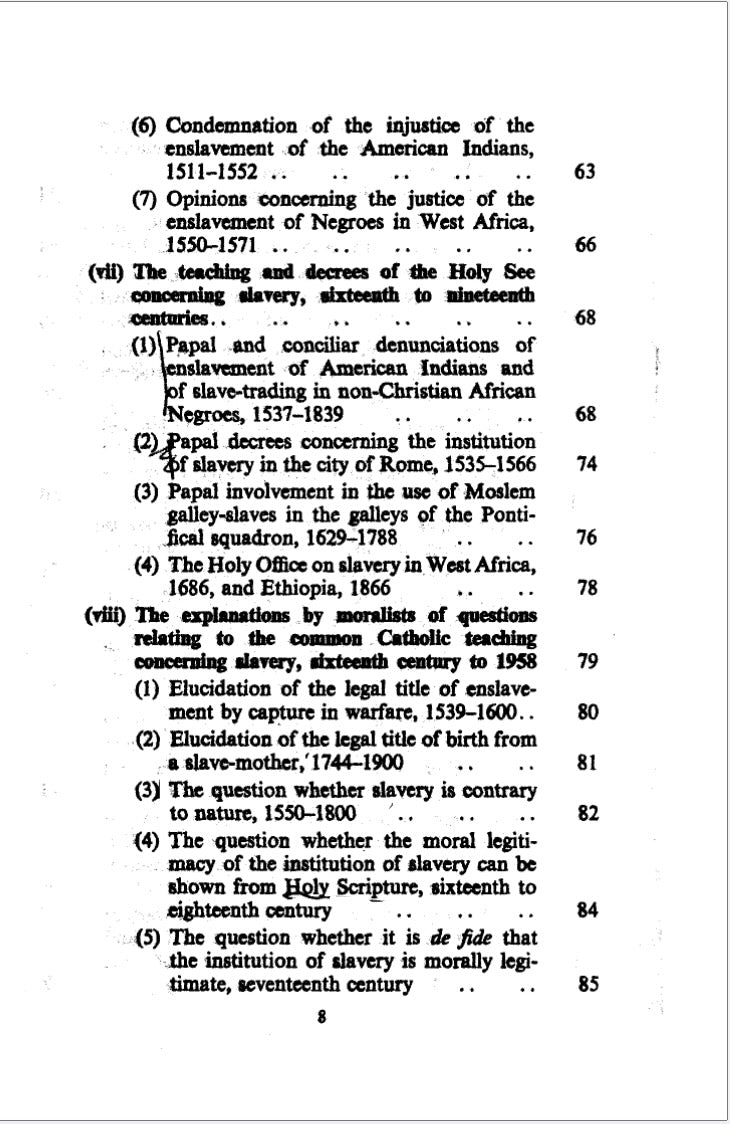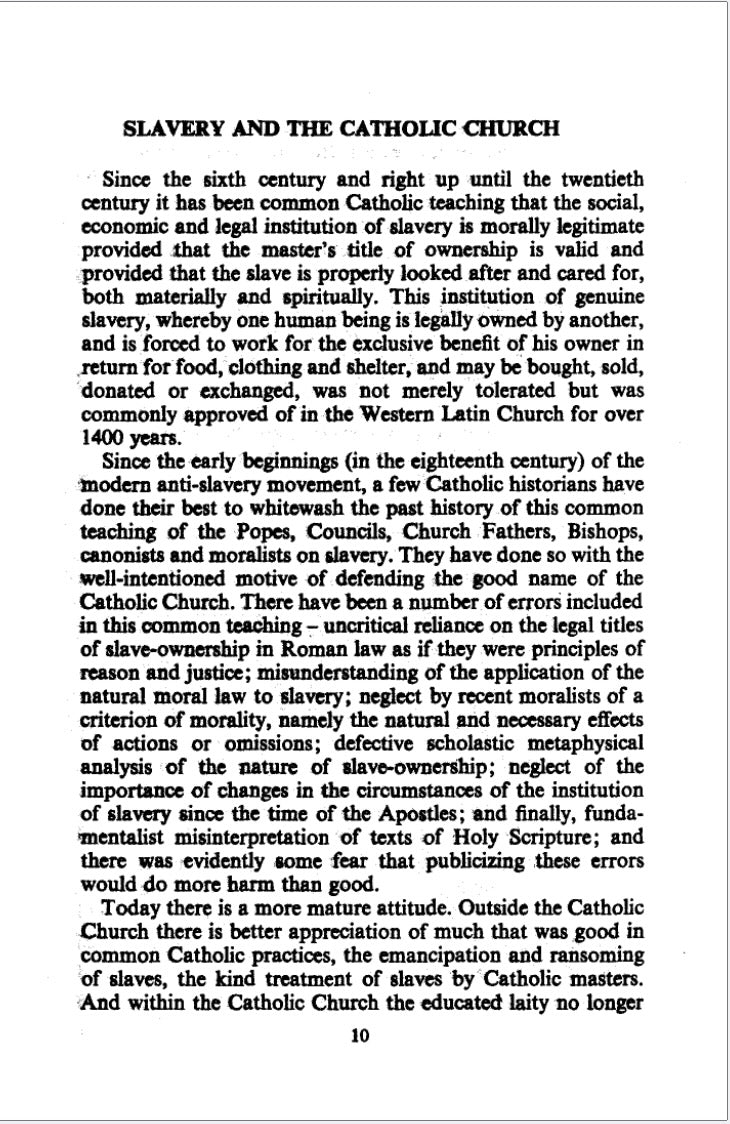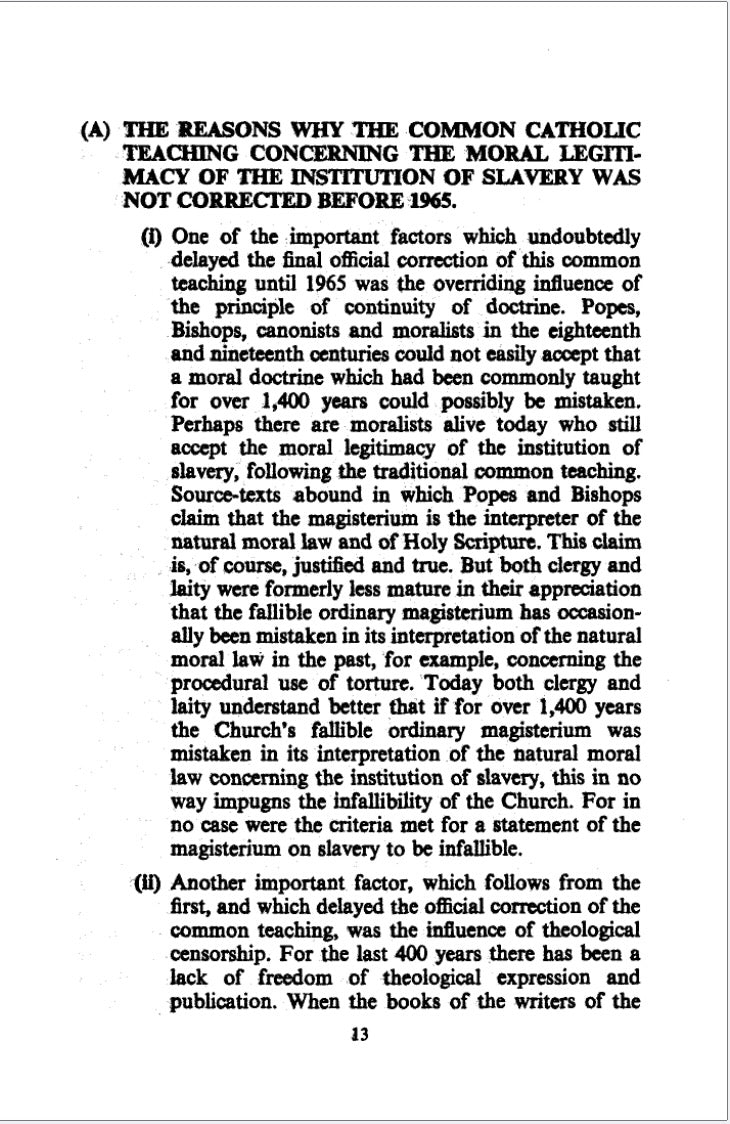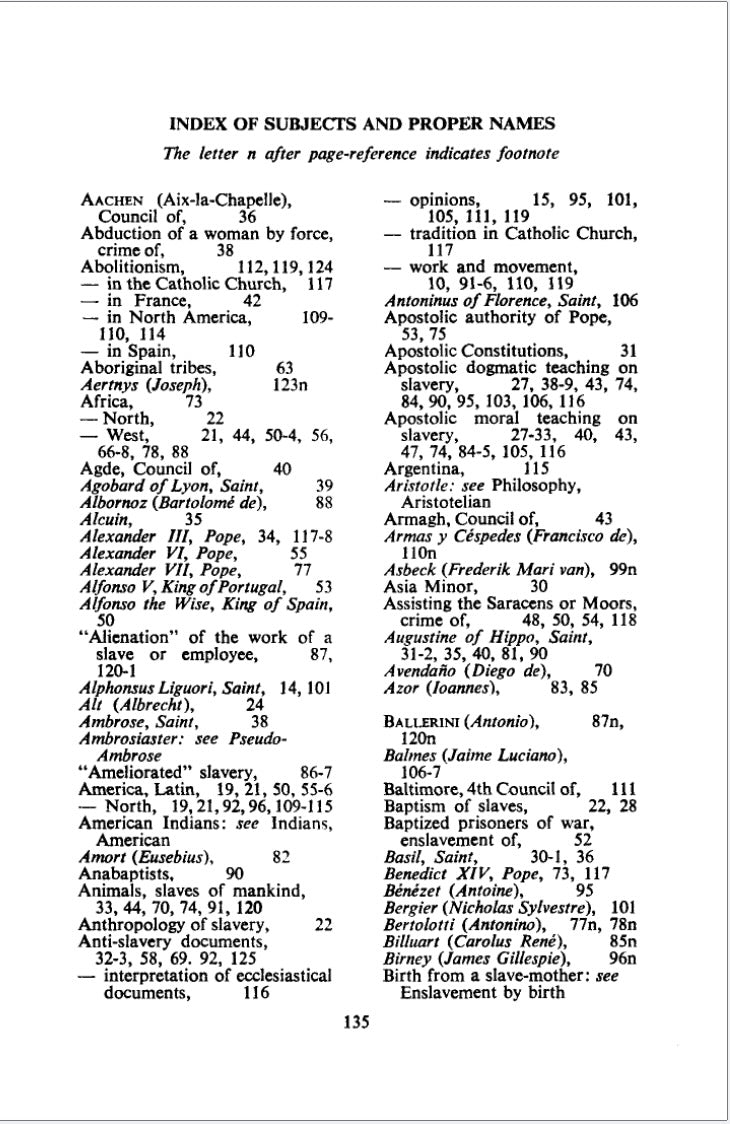Obscure Books
Slavery and the Catholic Church by John Francis Maxwell
Slavery and the Catholic Church by John Francis Maxwell
Couldn't load pickup availability
This is a FACSIMILE REPRINT of an exceedingly difficult book to find.
1975 edition printed in 2025.
Please allow 2-3 weeks for book to be delivered.
Note: This book is a reproduction of the historical text for academic, historical, or collector purposes.
141 pages / 5.5" x 8.5"
Slavery and the Catholic Church: The history of Catholic teaching concerning the moral legitimacy of the institution of slavery
Fr. Maxwell's book is about the history of the Catholic Church's TEACHING on slavery, and no book on that topic could be better organized. His aim was to outline what must be included in an exhaustive documentary history of the Church's TEACHING about slavery's LEGITIMACY, which he did not pretend to deliver in 135 pages, as the following abridgement of its detailed table of contents makes clear:
A) The reasons why the common Catholic TEACHING concerning the moral LEGITIMACY of the institution of slavery was not corrected before 1965
(B) The history of the common Catholic TEACHING concerning the moral LEGITIMACY of the institution of slavery
(i) The institution of slavery in the Old Testament
(ii) Natural freedom and legal slavery under Roman law
(iii) The institution of slavery in the New Testament
(iv) The TEACHING of the Church Fathers and Councils up to the late twelfth century
(v) The influence of Greek philosophy and Roman civil law on the formulation of the common Catholic TEACHING concerning slavery, late twelfth to mid-fifteenth century
(vi) The practical application in West Africa and Latin America of the common Catholic TEACHING concerning slavery, fifteenth to sixteenth centuries
(vii) The TEACHING and decrees of the Holy See concerning slavery, sixteenth to nineteenth centuries
(viii) The explanations by moralists of questions, relating to the common Catholic TEACHING concerning slavery, sixteenth century to 1958
(ix) The gradual appreciation of the existence of errors in the common Catholic TEACHING on slavery, leading to their long-delayed official correction, 1573-1965
To this Jeri's remarks about Vikings, the origin of the word "slave," and the anti-slavery efforts of Catholics are irrelevant. Let's hear Father Maxwell on his purposes, since few readers will have access to the book. Here are excerpts from his Preface:
"The original intention had been to prepare a collection of documents with short commentaries, something along the lines of the work of S. Z. Ehler and J. B. Morrall "Church and State through the Centuries" (London, 1954). For the situation is that no adequate documentary study exists to illustrate the history of Catholic TEACHING in the Western Church concerning the moral LEGITIMACY of the institution of slavery. Historical studies on particular moral problems can provide source-material for general histories of Catholic moral theology; it is no doubt regrettably true that because of the lack of such specialized historical studies in the past, no detailed full-scale history of the whole field of Catholic moral theology has yet been written.
"However, the preparation of a full documentary history in this particular field is beyond the limited capabilities of the collector and translator of these documents. Further research is needed especially of Portuguese and Italian sources; and if the archives of the Holy Office (now the Sacred Congregation for the Doctrine of the Faith) could be placed at the disposal of competent investigators, this would be likely to provide a rich store of theological source-material. The author disclaims any expert knowledge of ecclesiastical history; and the provision of an adequate historical background in proper perspective for some of the documents is something which would demand the willing collaboration of an ecclesiastical and a social historian. So the author apologizes in advance that this is a mere interim report after a private investigation into the history of the common Catholic teaching in this particular area. This interim report indicates that future expert investigation is called for. As a preliminary summary presentation of the case it presupposes in the reader a minimal knowledge of the history of Western Europe."
Share
